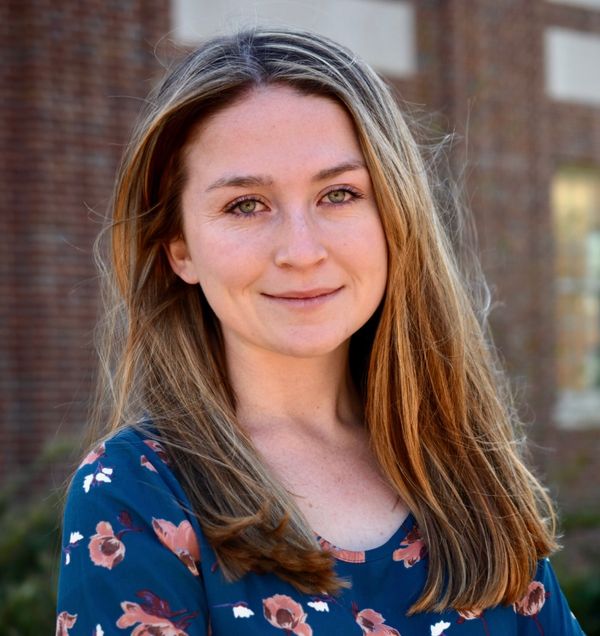Student Spotlight: Ciara Coger (MHCBM ’24)
 Ciara Coger is a second-year student in the Master of Arts in Mental Health Counseling & Behavioral Medicine program at Graduate Medical Sciences. Ciara’s research studies lay beliefs and lay theories surrounding COVID-19 health disparities in the United States. She hopes to continue her pursuit of both clinical work and multicultural psychological research. Learn more about Ciara below!
Ciara Coger is a second-year student in the Master of Arts in Mental Health Counseling & Behavioral Medicine program at Graduate Medical Sciences. Ciara’s research studies lay beliefs and lay theories surrounding COVID-19 health disparities in the United States. She hopes to continue her pursuit of both clinical work and multicultural psychological research. Learn more about Ciara below!
Tell me about your journey to Boston University. Are you from the Boston area?
I spent most of my childhood in the panhandle of Florida, but grew up moving to different places as a part of a military family. I attended Davidson College in Charlotte, NC and pursued a Psychology major and minor in Philosophy. As a student, I began participating in research and hoped to attend graduate school to become a mental health clinician. Boston University’s Mental Health Counseling & Behavioral Medicine program stood out to me because of its course offerings, faculty expertise, and location on the medical campus. Having an emphasis not only on mental health counseling, but also behavioral medicine allows for counselors to have a broader perspective of mental health that is evidence-based and holistic.
Tell me a bit about your research in the Mental Health Counseling & Behavioral Medicine program.
For the past couple of years, I have worked alongside psychological researchers to investigate “lay beliefs” and “lay theories” surrounding COVID-19 health disparities in the United States. Specifically, we asked, “What do White Americans attribute the higher rate of COVID-19 infections, hospitalizations, and deaths in Black and Latinx communities to?” Our team hypothesized respondents would attribute these disparities to four potential reasons or explanations. These included external causes (e.g. systemic racism), internal causes (e.g. personal choices), cultural causes (e.g., being close-knit), or genetic causes (e.g., being more vulnerable for genetic reasons). Our study revealed that participants were most likely to endorse lay theories involving external factors, such as systemic racism, and were less likely to endorse lay theories of genetic causes. In addition to this project, I have conducted research surrounding forgiveness and feelings of belongingness following a racial transgression and the perpetrators’ apology.
What drove you to pursue this career & research path?
I had always had a goal of pursuing a career in health sciences but found that mental health interested me the most due to its prevalence in all populations. Our communities are severely affected by systemic issues that impact the quality of care individuals receive. I aim to be a clinician who can acknowledge these concerns and practice counseling from a culturally inclusive perspective. As an aspiring researcher, I want to conduct research that furthers efforts to bolster inclusive counseling methods and theories. I believe that clinicians need to be trained to be aware of their own biases, be willing to learn from others, and create spaces that are safe for those who have experienced different adverse events.
What are your longer-term goals in this field?
I have goals to pursue not only clinical work, but also continue multicultural psychology research to further the field of mental health counseling and counseling psychology. Examining how we perceive health disparities and address social justice concerns is vital in the medical field, as we need to be more cognizant of how we can be more culturally competent and acknowledge numerous, diverse experiences in our patients.
Have you faced any unexpected challenges in your MA program? How did you overcome those?
Upon moving to Boston and starting the program, I had to adapt to many changes that were initially difficult. I had moved to a new city where I didn’t know anyone while also adapting to a new kind of course load. It felt strange having to shift into a new role, but also exciting. I tried to lean into the excitement and try new things both in the city and through GMS. Additionally, I relied on previous organizational skills that worked well before to help me during the school year.
Do you have any advice for incoming GMS students?
Try to get outside of your comfort zone. Whether it’s going to a GMS event, stopping by a professor’s office for help, or connecting with classmates outside of the academic setting, I really believe that even the smallest efforts can foster great relationships, establish mentoring, and develop great mental health practices. Additionally, make time for self-care! Your health and well-being are super important and deserve attention!